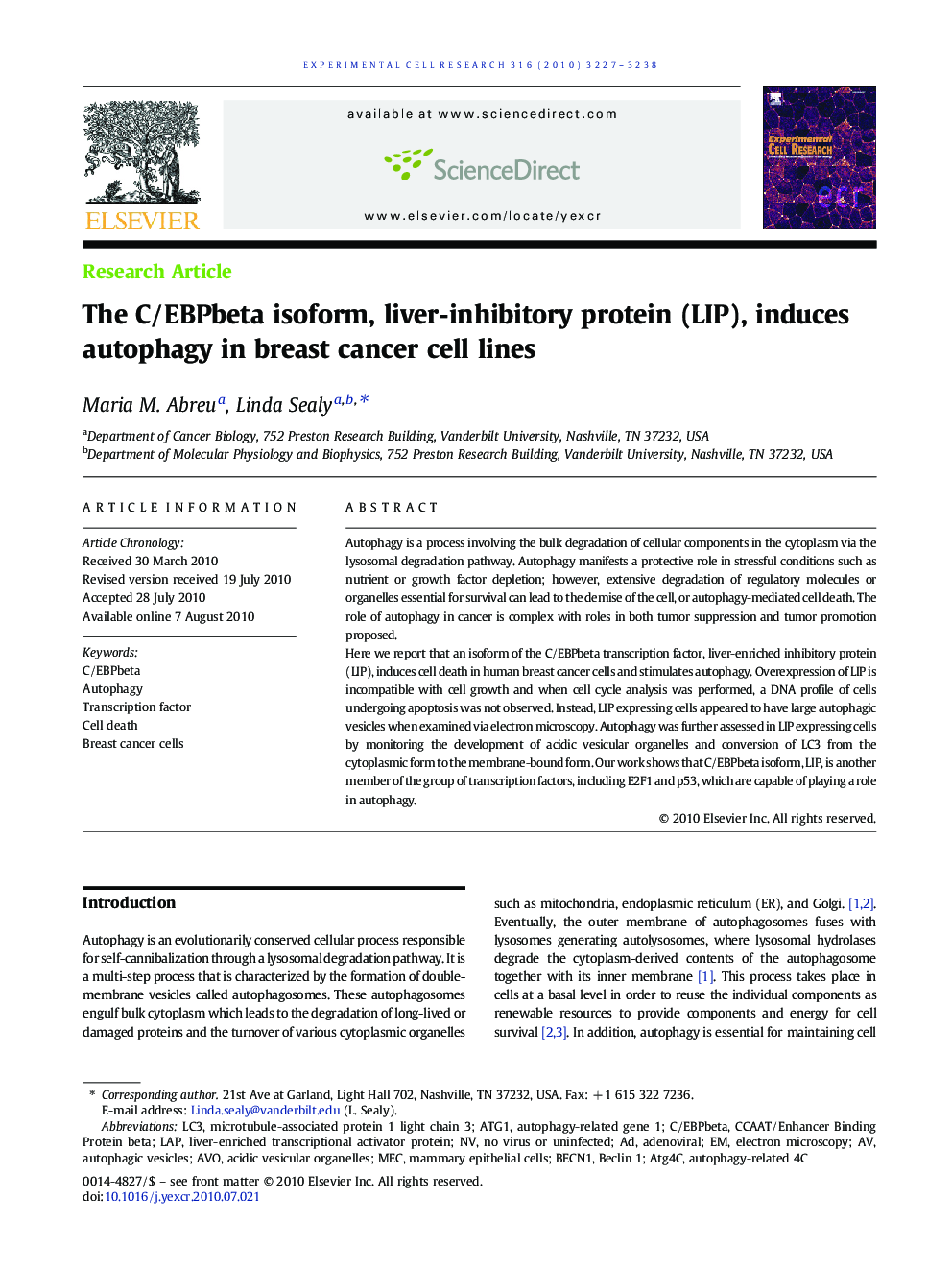| Article ID | Journal | Published Year | Pages | File Type |
|---|---|---|---|---|
| 2131011 | Experimental Cell Research | 2010 | 12 Pages |
Autophagy is a process involving the bulk degradation of cellular components in the cytoplasm via the lysosomal degradation pathway. Autophagy manifests a protective role in stressful conditions such as nutrient or growth factor depletion; however, extensive degradation of regulatory molecules or organelles essential for survival can lead to the demise of the cell, or autophagy-mediated cell death. The role of autophagy in cancer is complex with roles in both tumor suppression and tumor promotion proposed.Here we report that an isoform of the C/EBPbeta transcription factor, liver-enriched inhibitory protein (LIP), induces cell death in human breast cancer cells and stimulates autophagy. Overexpression of LIP is incompatible with cell growth and when cell cycle analysis was performed, a DNA profile of cells undergoing apoptosis was not observed. Instead, LIP expressing cells appeared to have large autophagic vesicles when examined via electron microscopy. Autophagy was further assessed in LIP expressing cells by monitoring the development of acidic vesicular organelles and conversion of LC3 from the cytoplasmic form to the membrane-bound form. Our work shows that C/EBPbeta isoform, LIP, is another member of the group of transcription factors, including E2F1 and p53, which are capable of playing a role in autophagy.
